|
12/1/2018 Dancing the Night Away in ActonThe Society is lucky to have a collection of dance cards that were obviously kept as mementos. They give us a glimpse of Acton's community life in the late nineteenth and early twentieth centuries. Despite the fact that people lacked today's conveniences, they clearly were able to enjoy social occasions. As far back as we have newspaper records, we find that dances were held in town. Venues included the Town Hall in Acton “Centre,” Exchange Hall in South Acton (both built in the 1860s), and Littlefield’s Hall in West Acton (built about 1893 and burned down in 1904; see our blog post for further information). Our earliest dance card was created for the "Eighth Annual Bal Masque" held at Exchange Hall on January 21, 1875, confirming that dances were being held as far back as the 1860s. Holidays were favorite occasions for formal balls, but dances seem to have been held quite often. Some were fundraisers for local groups, some were either public or private celebrations, and others may have been private profit-making ventures. Dance cards were printed in advance with the details of the event, usually including the committee in charge and the group who would provide the music. The inside of the card listed the dances that would be performed. Blank lines were provided for filling in the name of the partner to whom each dance was promised. The card would have a decorative cover, making it an attractive souvenir of the evening. Held together by a string or ribbon, the card sometimes had a pencil attached for convenience. One of our earliest dance cards was created for the Royal Arcanum Grand Ball held in Exchange Hall on January 13, 1885. The dances and musical selections were specified, mostly quadrilles, (danced in squares of four couples), with a few partner dances interspersed. In the middle of the Ball, there was an intermission and a supper. According to newspaper reports, the local baseball club held fundraising dances as far back as 1884. Several of our dance cards made it very clear that patrons were supporting the team. Researching the use of dance cards, we found that many sources indicate that dance cards were filled in only by men seeking to reserve dance partners. Our collection shows that women sometimes filled in dance cards, too. In keeping with the customs of the time, the owner of this 1892 card danced with more than one partner, but the with “M.I.S.” was carefully blocked out, including the Grand March and the first and final dances. We also note that a wide variety of dances were offered, with a mix of group dances such as the Quadrille and the Contra and partner dances such as the Waltz, Polka, Schottische, Galop and the relatively uncommon Newport.
Attendees were not all dancers. According to newspaper reports, spectators could buy tickets for the platform or the gallery. The Society has an invitation to a 1904 South Acton dance which cost $1 for a “subscription” and only 25 cents for an orchestra or balcony chair. In the Town Hall, in 1896, non-dancers at the Christmas dance were given an adjoining room at which to play whist (Concord Enterprise, Dec. 24, page 8). The events, at least for the more formal occasions, would include a meal. An advertisement in the November 23, 1899 Concord Enterprise (page 8) told dancers what they could expect at the Thanksgiving Ball at Littlefield’s Hall; a “hostler” to take care of horses at the door of the Hall, a coat check and convenient toilet rooms, an excellent dance floor, good music, and a supper for 35 cents consisting of various oyster dishes, pickles, olives, ice creams, cakes, fruit, and coffee. The ad made the claim that “No where in this vicinity is offered so many advantages for comfort and facilities for enjoyment at a ball, as at West Acton.” The competition for dancers evidently was becoming fierce. Organizers of a Concord Junction dance advertised in the South Acton and West Acton locals on November 16. South Acton’s Thanksgiving Ball organizers offered anyone who bought Ball tickets free admission to a dance the week before. A report on the complimentary dance mentioned that “best of all there was no dust in the hall." (Nov. 30, 1899, page 8). The December 7 issue of the Enterprise (page 8) reported that the South Acton Thanksgiving Ball was “great success” with 80 couples who had “tripped the light fantastic toe” and every spectator seat filled. In contrast, the West Acton news included a letter from H. A. Littlefield denouncing “as false the malicious story started Thanksgiving day or the day before that my family was sick with diphtheria and that I was not allowed to be out” so that “it would be imprudent to attend the ball in Littlefield’s hall. The story had its effect; there was no time to refute it and it spread with a rapidity that leads to the conclusion that it was pre-arranged.” Stories, true or not, spread quickly in a small town. One other item of note struck us as we looked at the old dance cards; the affairs could be long. Starting around 8 pm and including a dinner, they went as late as 2:30 am. Getting home, for those who lived beyond easy walking distance, would have involved using and then caring for horses after a long night. One has to be a bit awed by former Actonians’ energy. Comments are closed.
|
Acton Historical Society
Discoveries, stories, and a few mysteries from our society's archives. CategoriesAll Acton Town History Arts Business & Industry Family History Items In Collection Military & Veteran Photographs Recreation & Clubs Schools |
Quick Links
|
Open Hours
Jenks Library:
Please contact us for an appointment or to ask your research questions. Hosmer House Museum: Open for special events. |
Contact
|
Copyright © 2024 Acton Historical Society, All Rights Reserved
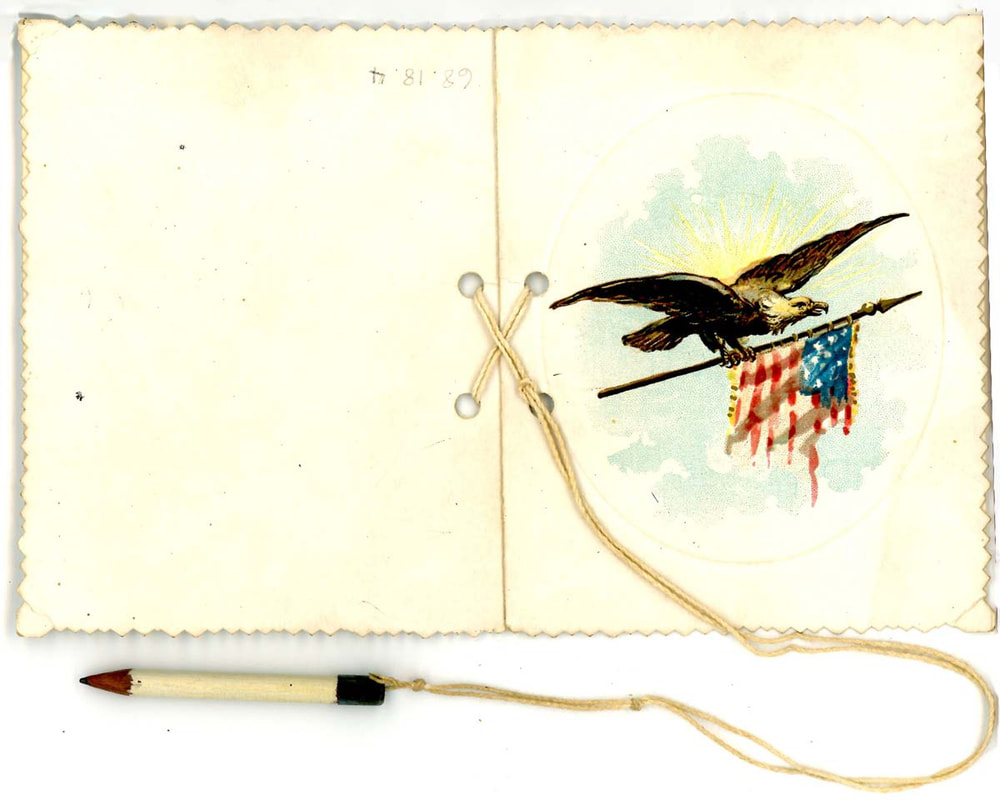
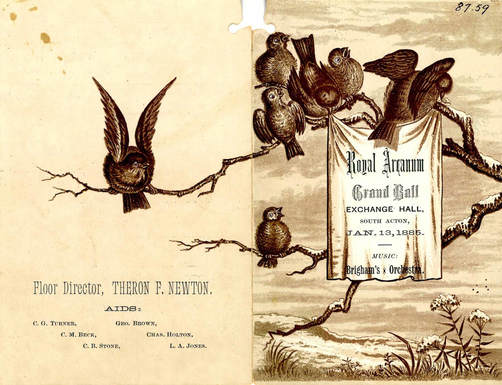
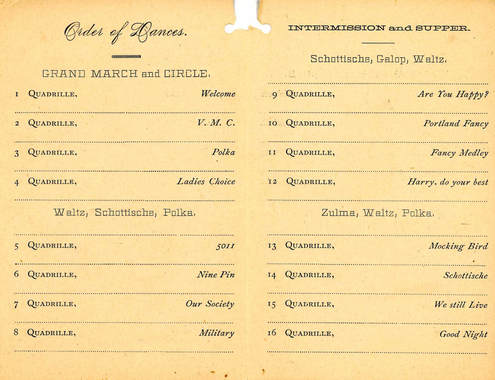
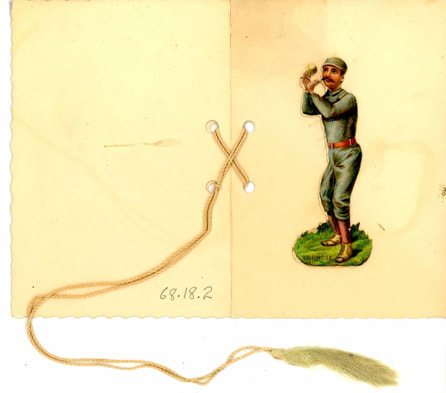
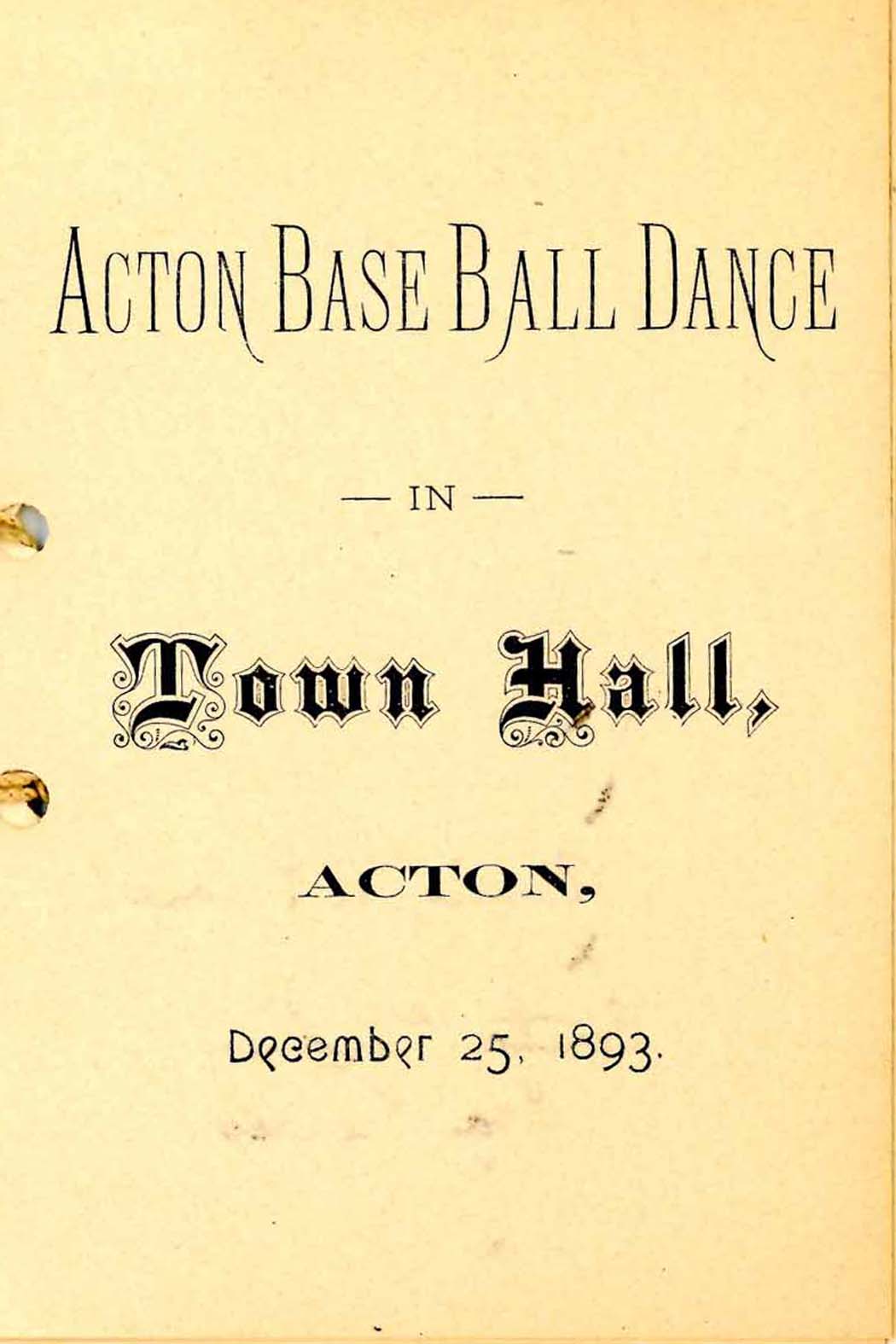
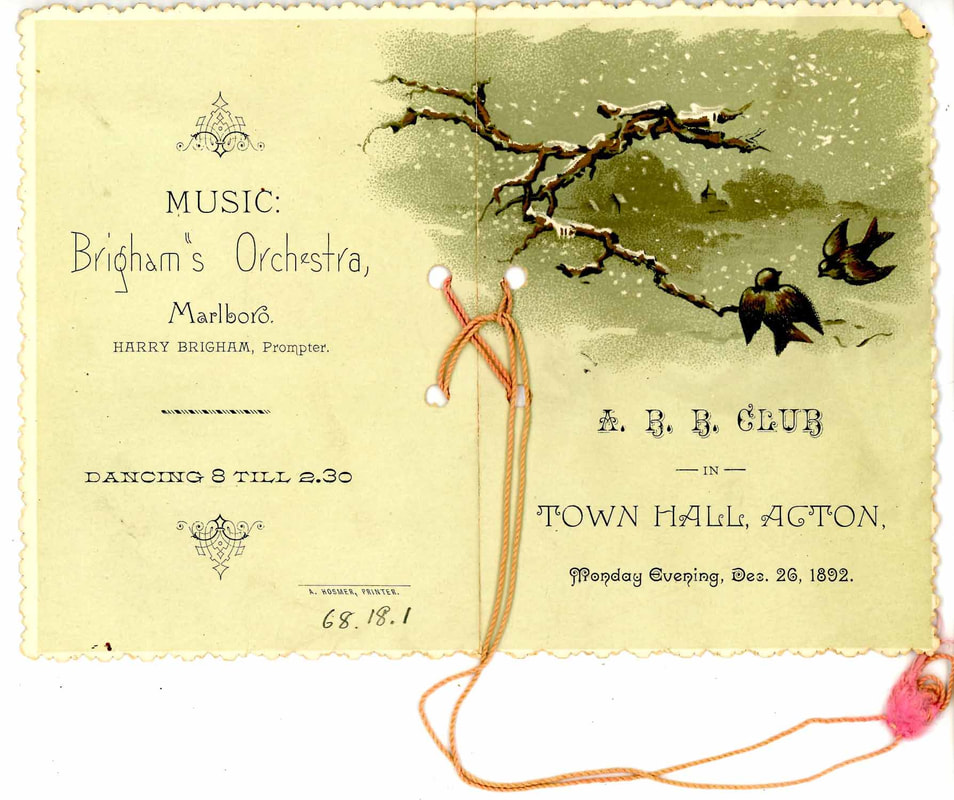
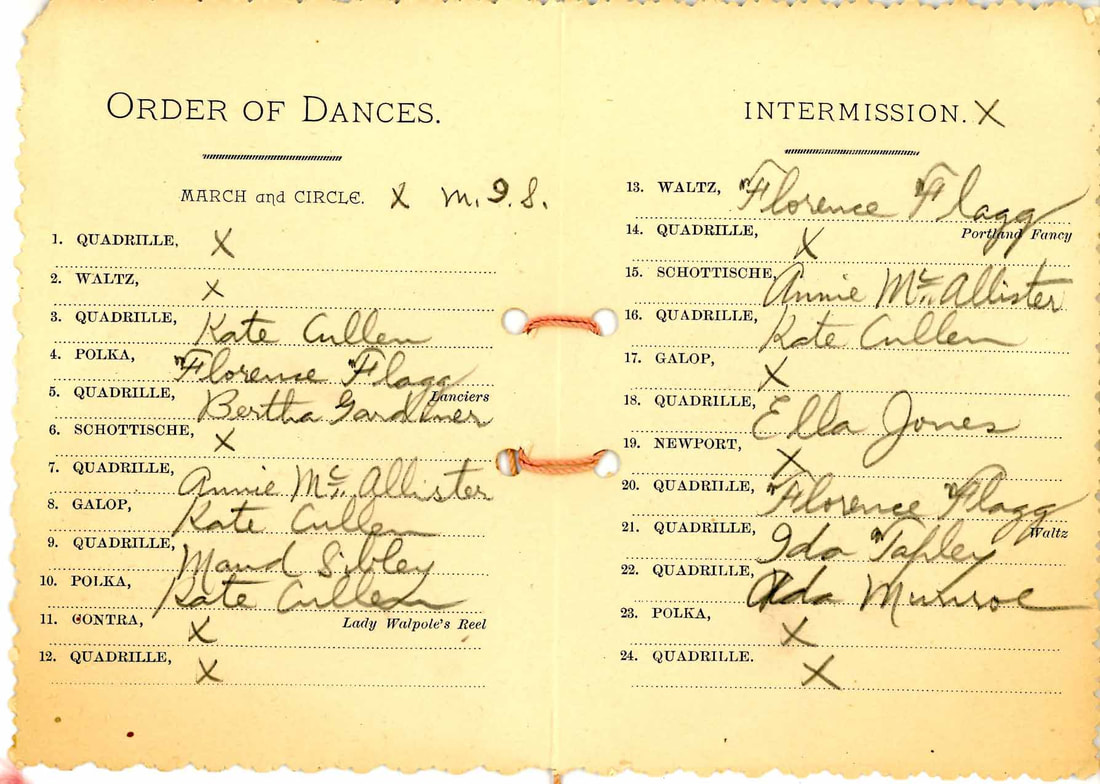
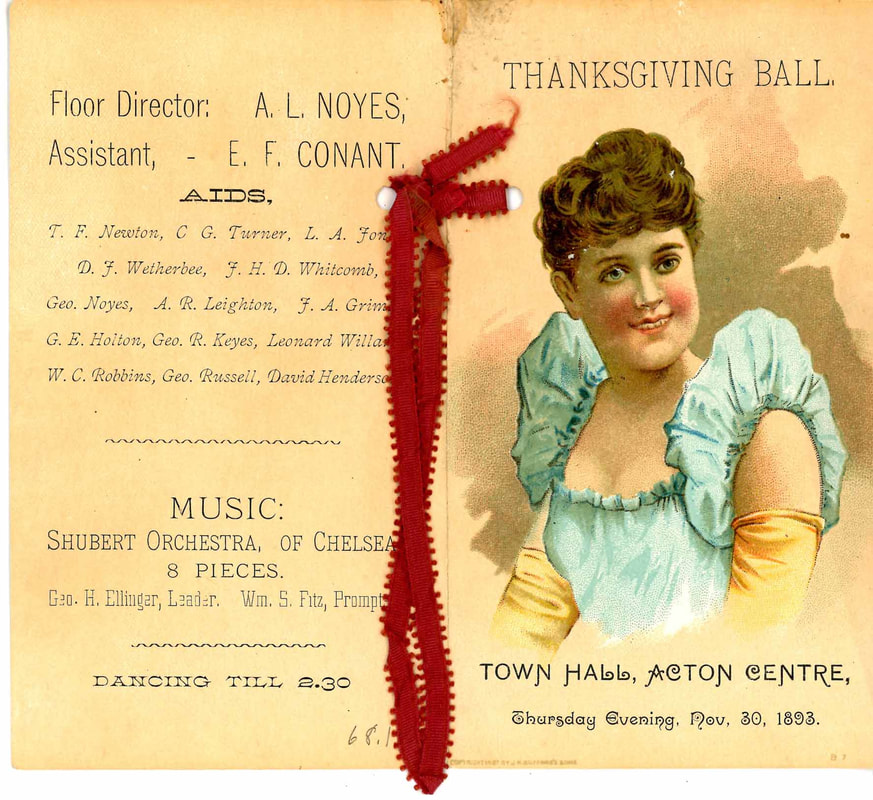
 RSS Feed
RSS Feed